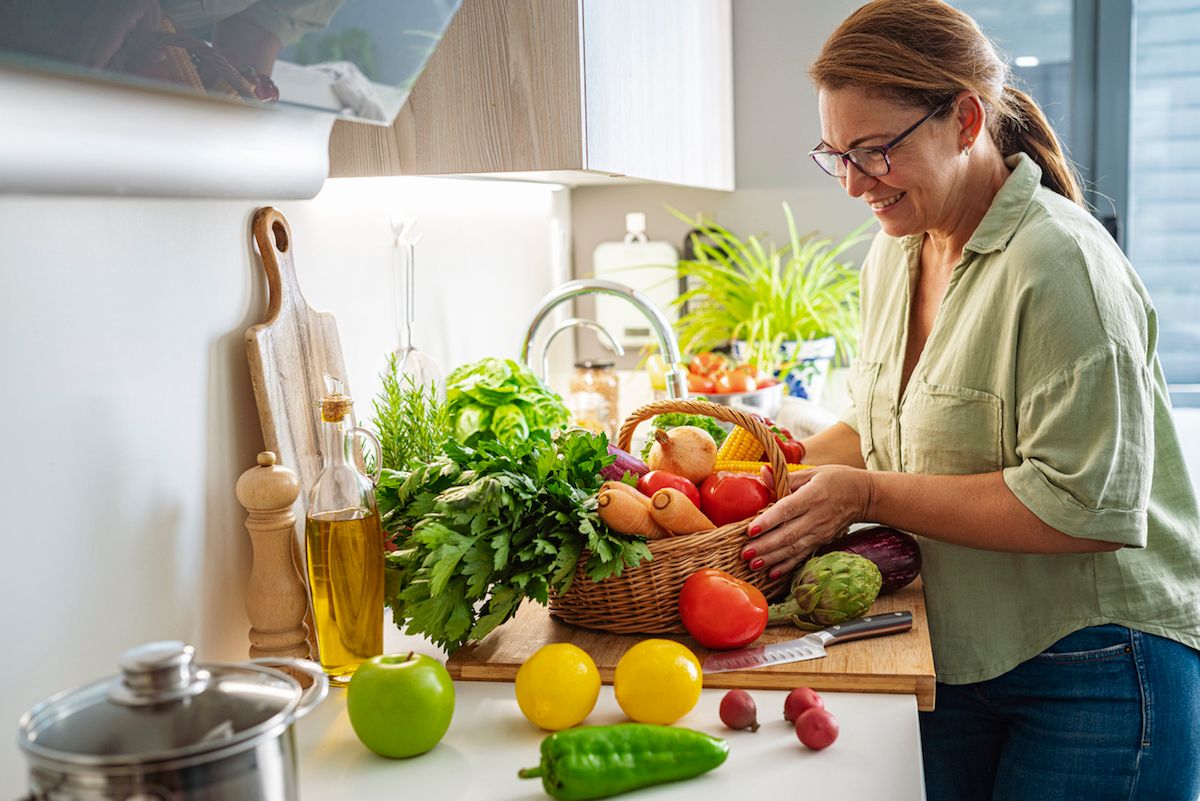23 Totally Insane Things Parents Let Their Kids Do
"Go ahead, touch the Cornballer. You know best."
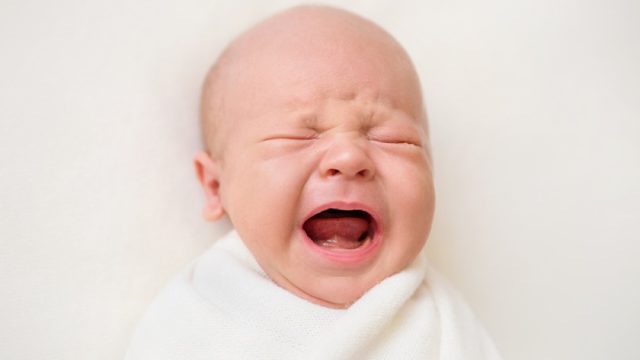
Ask a hundred parents about their philosophy when it comes to raising their little ones and you'll likely get a hundred different answers. From attachment parenting to discipline-based structure, there are infinite ways to raise a well-rounded kid. That said, there are some things parents let their kids do that seem wild even to the most lenient caregivers. So whether you need a template of what not to do or just want to feel better about giving your kid ice cream for dinner, read on.
1
Use pacifiers forever
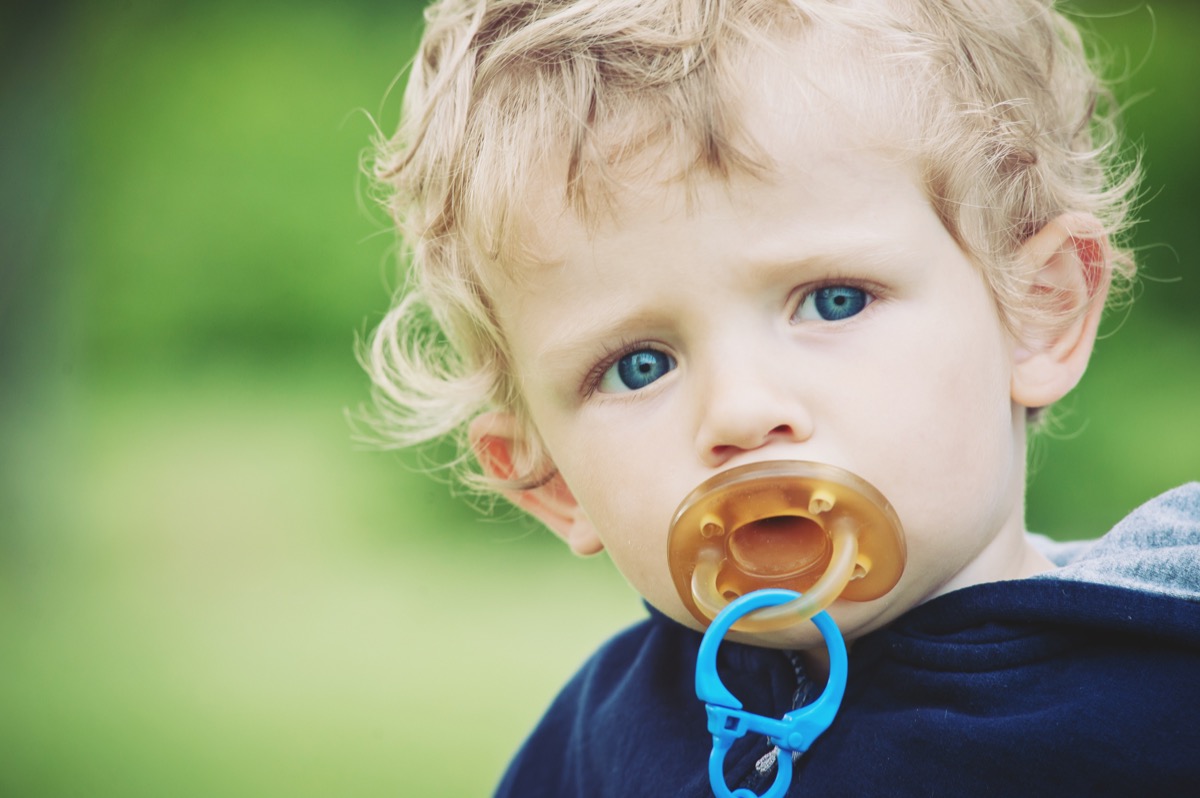
While giving your kid a pacifier when they're upset or going to sleep may help them settle, parents who allow their kids to keep using pacifiers well past toddlerhood may be doing them a serious disservice in the long run. Though a 2009 review of research published in American Family Physician reveals that, despite the fact that both the American Academy of Family Physicians and the American Academy of Pediatrics discourage pacifier use after age four, many parents allow their children to continue using them until later in life.
The main problems with this approach? Firstly, it's a risk factor for inflammatory inner ear condition otitis media, according to a 2008 study published in Family Practice. On top of that, a 2017 study published in the International Journal of Science and Research reveals a greater risk of cavities among pacifier users—56 percent versus just 10 percent in those who didn't use them.
2
Let them choose their own bedtimes
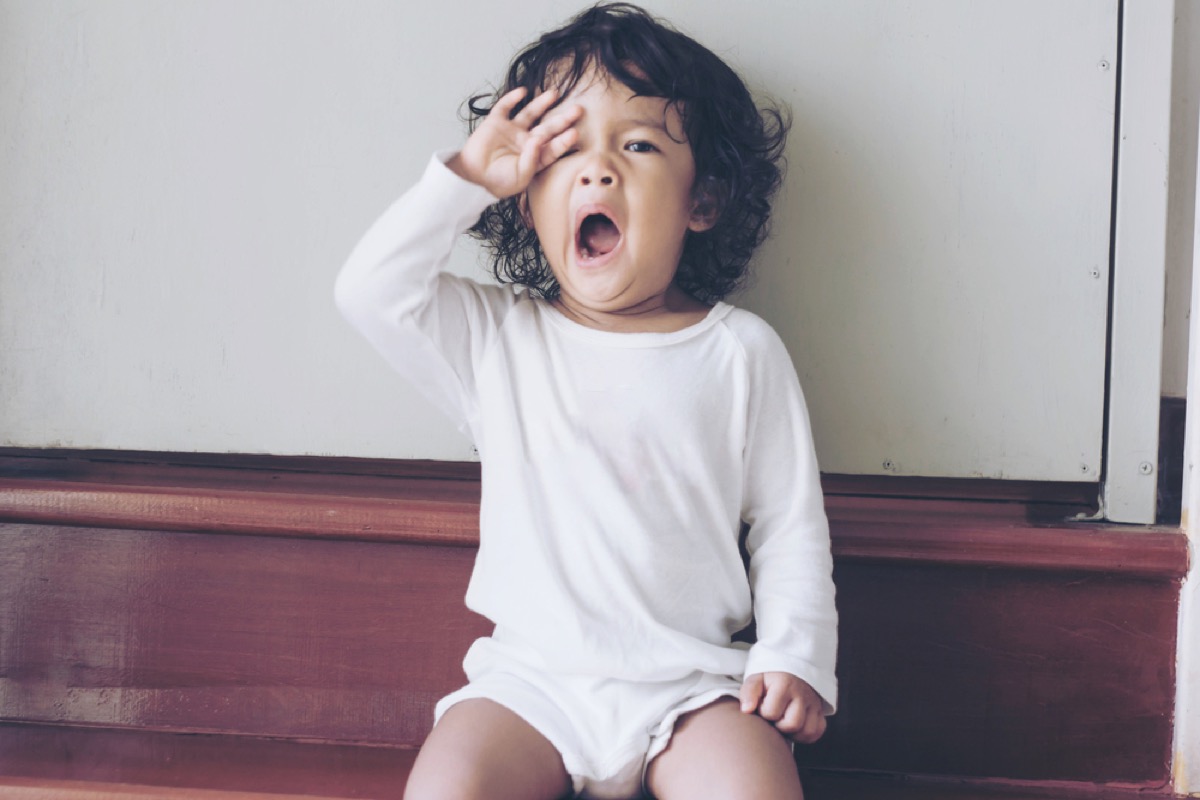
While many parents will tell you that their preferred bedtime for their children is simply "as early as possible," others take a different approach—namely letting kids decide when they go to sleep. "If they need to be woken in the morning, they should have a set bedtime," says Rebecca Michi, a Seattle-based sleep consultant. "A child who needs to be woken in the morning is missing out on sleep. I am not a fan of children setting their bedtime. I think sleep is something that parents should be in charge of."
3
Let them cry it out for hours
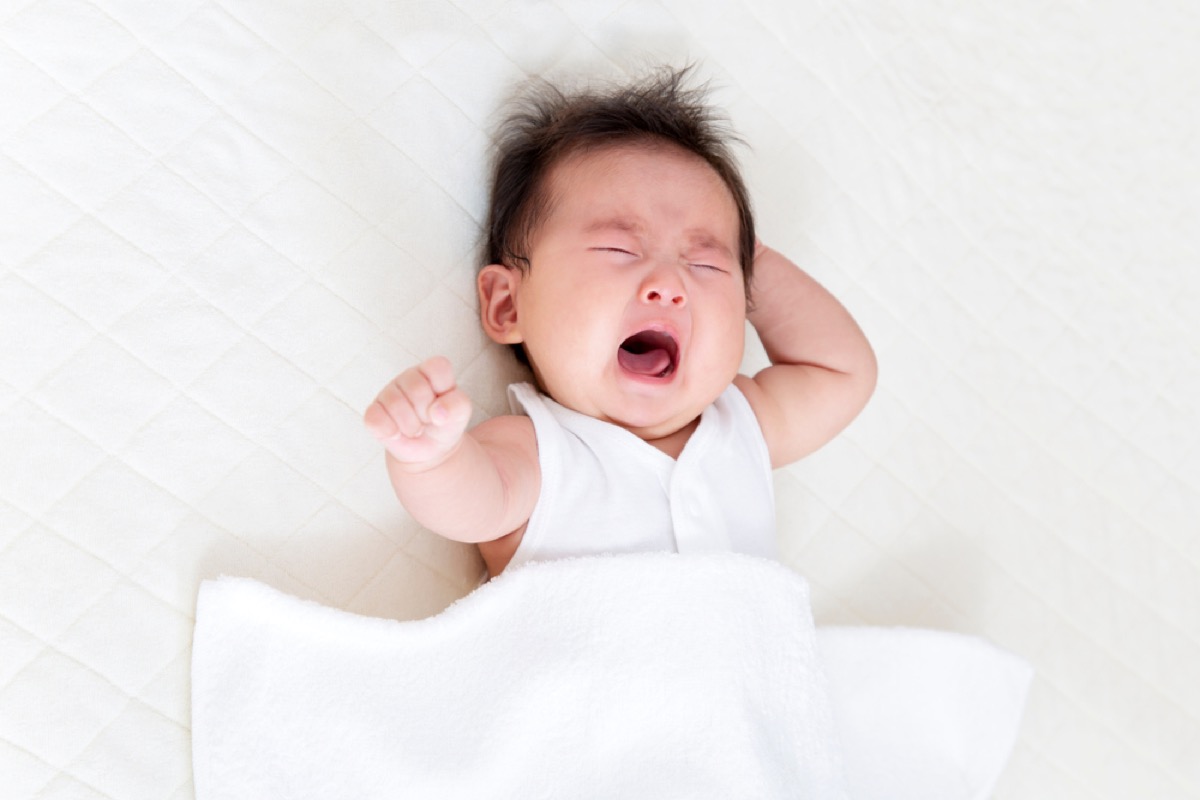
Similarly, parents of infants who are convinced of the "cry it out" method of sleep training may do more harm than good.
"'Cry it out' does not work for every family, regardless of what your neighbor, doctor, or random person in the supermarket says. That's not to say that it doesn't work for some, it does, but not all," says Michi. "Those who have a more intense and spirited temperament struggle with 'cry it out.' When left to cry, they begin to panic, and when they panic, the fight-or-flight response is triggered—and honestly, no one is sleeping when that happens."
4
Do no chores at home
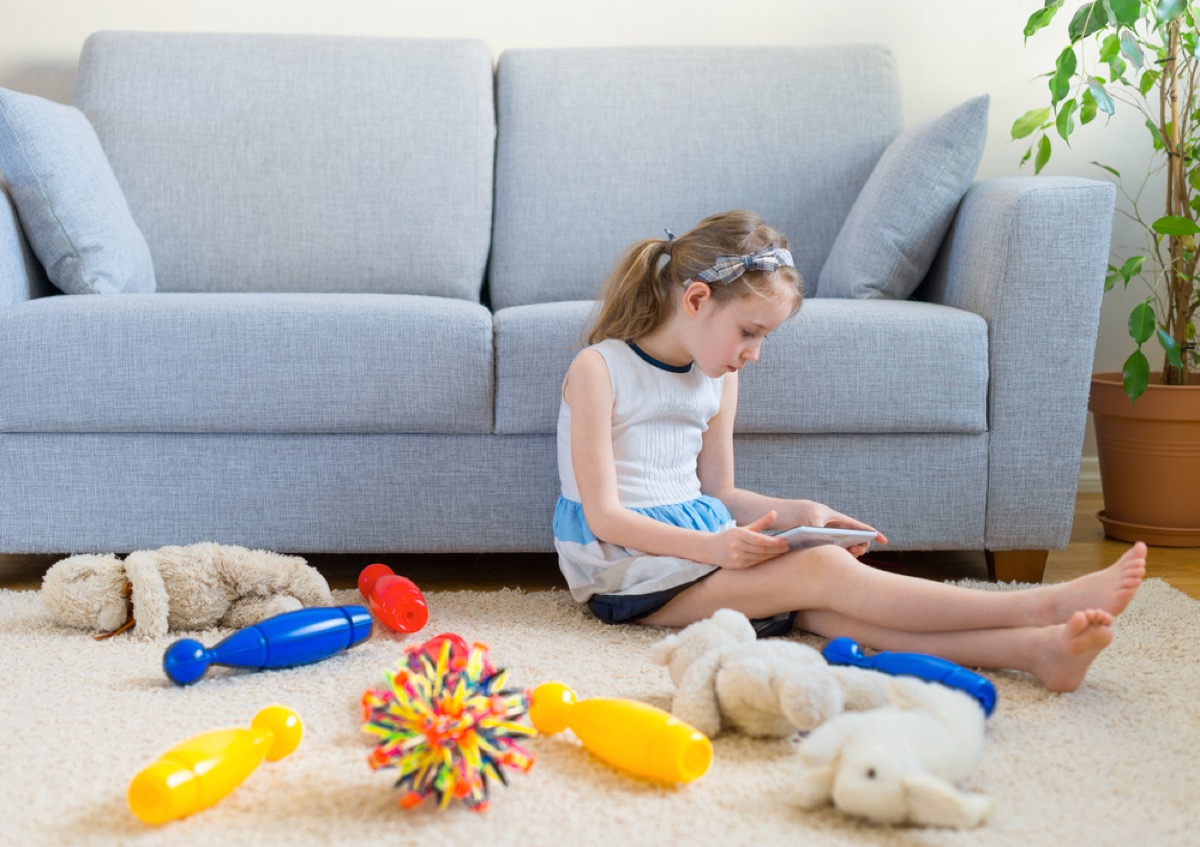
Though parents 50 years ago may have expected their kids to do everything from making their beds to preparing meals, an increasing number of parents aren't making their kids do any chores at home—and it's not exactly having great results. According to a 2002 study conducted at the University of Minnesota, the easiest way to determine how successful someone would be by their mid-20s was whether or not they participated in chores as a young child.
5
Eat huge fast food meals
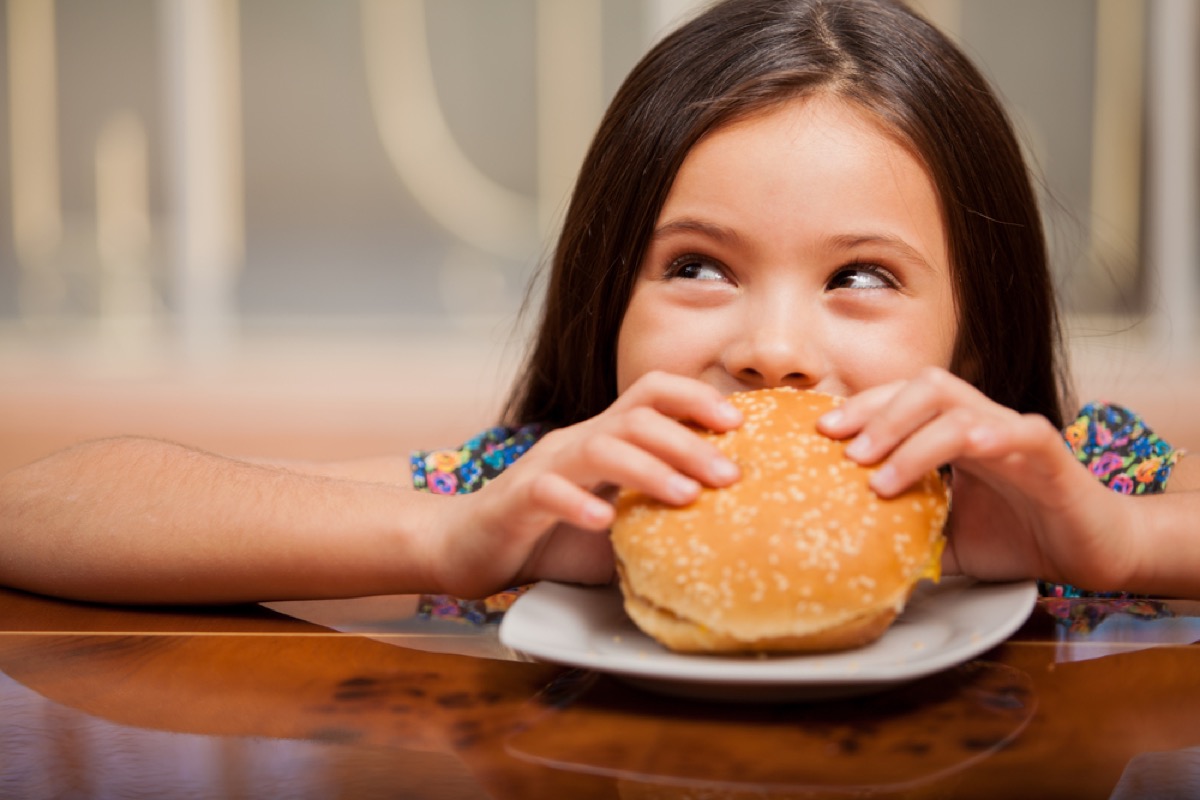
They may be convenient, but letting kids eat fast food for every meal isn't doing them any favors. Even relatively judicious-seeming kid-sized meals can be loaded with calories: A kid's Happy Meal at McDonald's, for instance, can contain up to 595 calories—more than half of what young children should be eating in a whole day, according to the Office of Disease Prevention and Health Promotion.
And yet, the Centers for Disease Control and Prevention (CDC) report that more than one-third of American children are eating fast food every single day, which has been linked to childhood obesity, according to a 2014 study published in the Sudan Journal of Paediatrics.
6
Get every toy they ask for
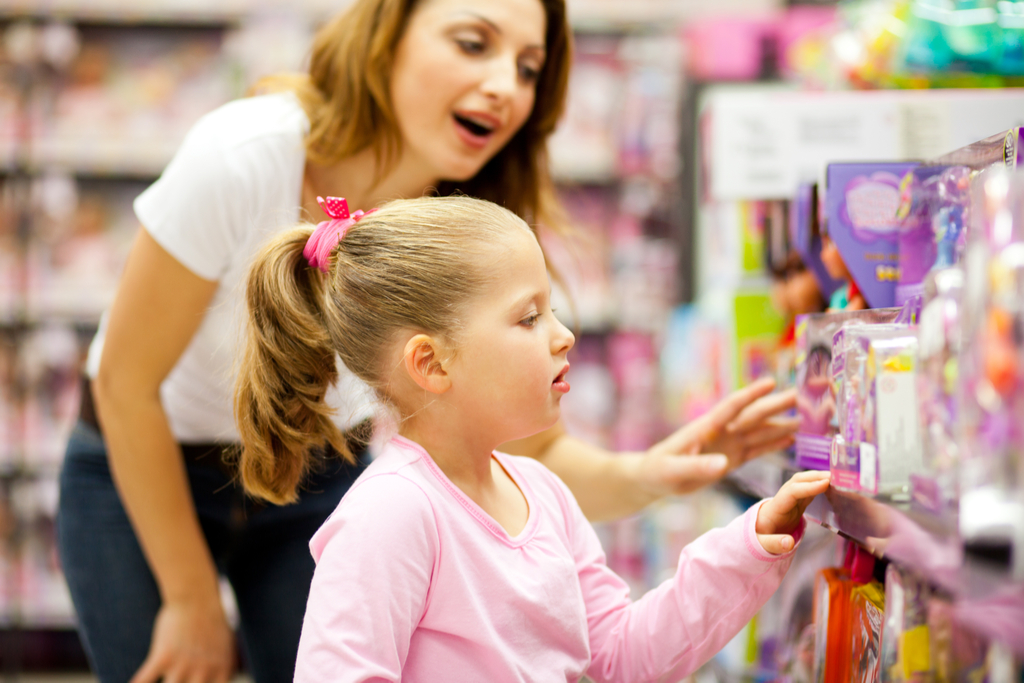
"Children need to work for almost everything they receive," says licensed mental health counselor Dr. Jaime Kulaga, PhD.
"A five-year-old might get a cookie because they were well-behaved in the store. They worked for that cookie. A 13-year-old might get her first cell phone because she has been trustworthy and maintained her grades through all of 7th grade. A 16-year-old might get a car only if they worked hard the summer before to earn half the money to put down on the car," she explains. "Teaching children to work for the things they want creates a value system that will help them become successful later in life. It teaches skills like overcoming obstacles, the importance of details, and the true value of money."
7
Never hear "no"
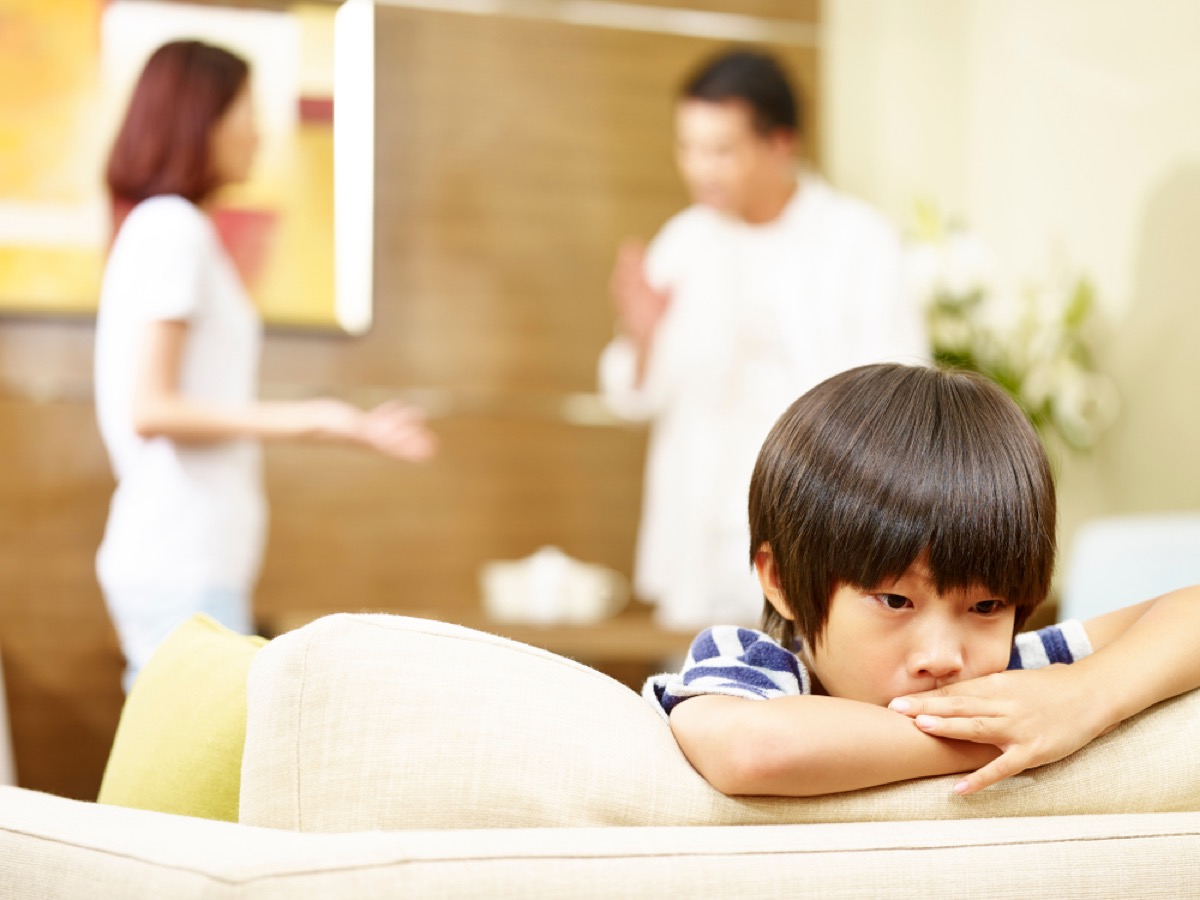
There are parents out there who believe the very word "no" is detrimental to their kids' well-being. Kulaga cites entitlement as one of the biggest problems for kids today—and having parents who won't even so much as utter the word "no" in their child's presence undoubtedly contributes to a skewed worldview over time.
8
Spend every spare minute doing extracurricular activities
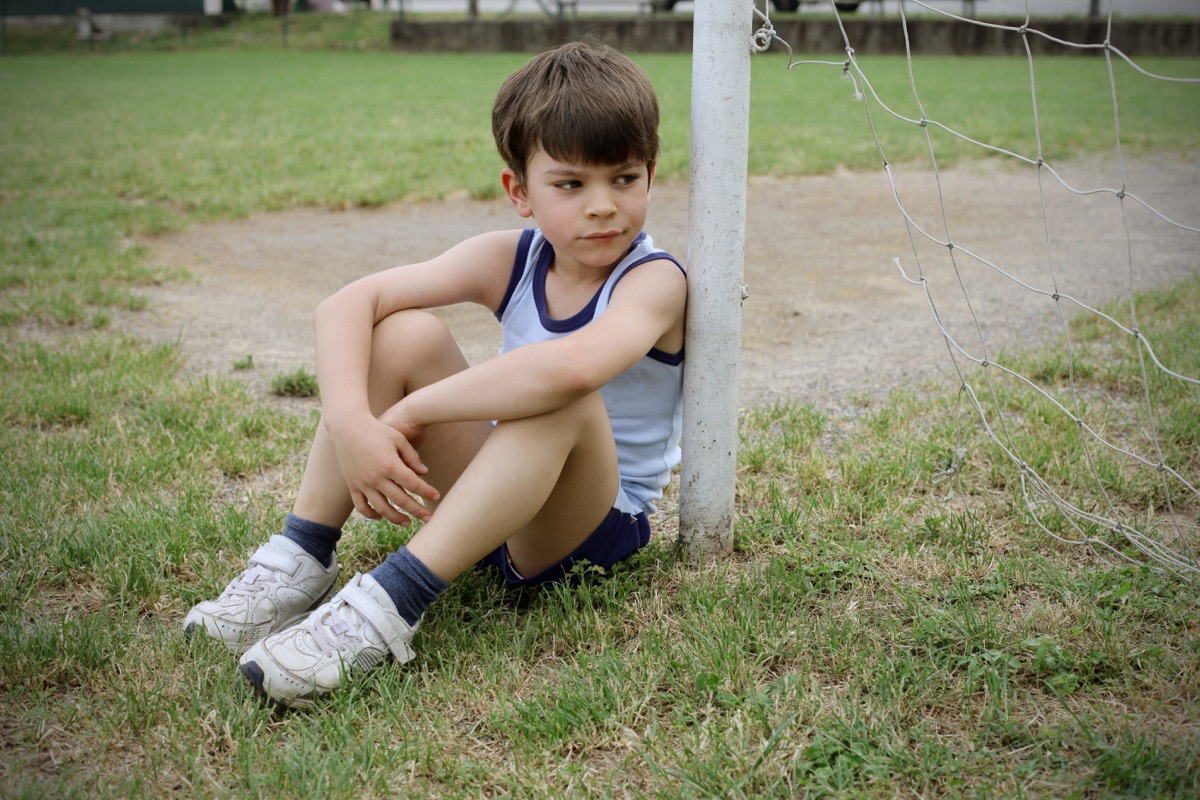
While some kids may be eager to spend every minute playing sports, joining clubs, or otherwise continuing to socialize with their friends, giving them unstructured time may be better in the long run. According to a 2014 study published in Frontiers in Psychology, over-scheduling may actually limit children's ability for executive functioning, like self-directed play.
9
Stay inside all day

While going outside to play—often unsupervised—used to be the norm for kids, that's hardly the case these day. According to a 2012 study published in JAMA Pediatrics, 49 percent of kids aren't taken outdoors to play on an average day. And sadly, it's to their detriment—outdoor play has been linked to everything from a reduced risk of obesity to lower childhood allergies.
10
Have devices at a young age
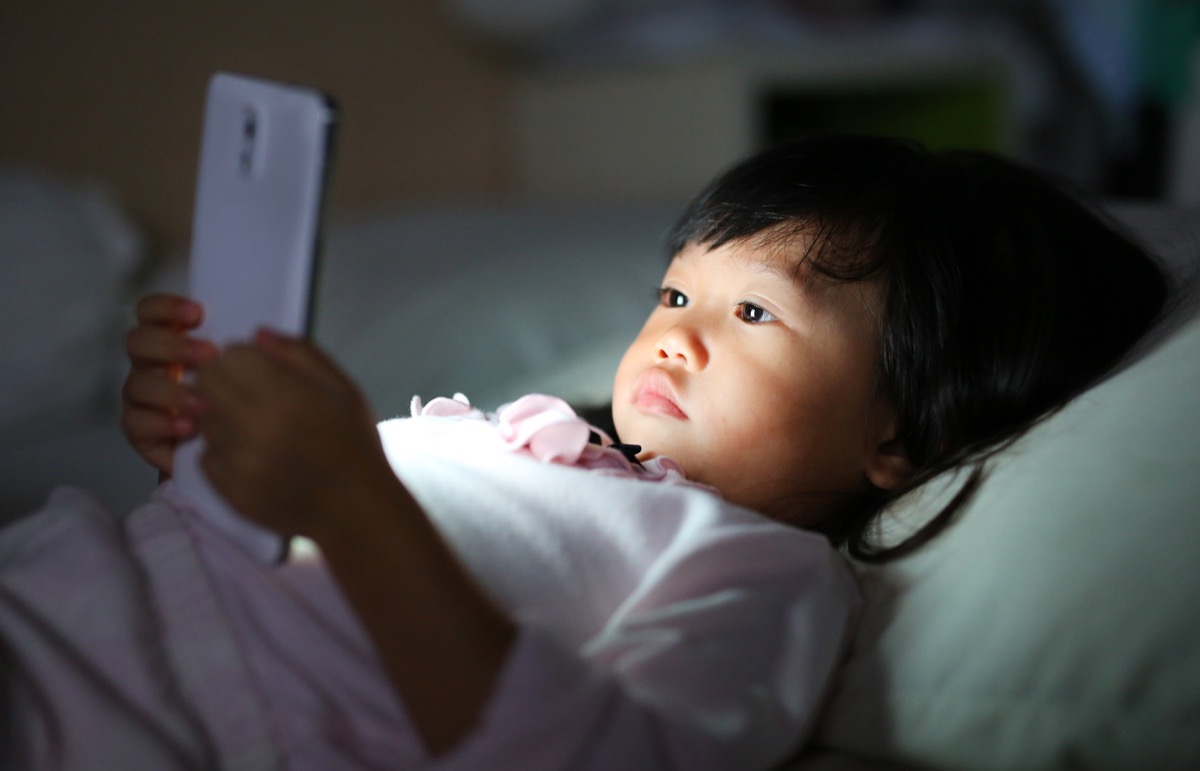
While 50 years ago, smartphones and tablets were nonexistent, kids today are not only getting to use them for hours, but are starting to use devices in their infancy. According to one 2017 study published in Pediatrics & Health Research, 44 percent of children studied had used a touchscreen device by the age of 3.
"The increase in children having online devices and technology is making a tremendous impact in the social development of children," says John DeGarmo, PhD, founder of The Foster Care Institute and author of The Foster Care Survival Guide. "As a result, today's children do not know how to write proper sentences, do not know how to look someone in the eye when communicating, and do not know how to sit across a table from someone and have a conversation for more than five minutes in length."
11
Overshare on social media

"Today's parents seem to allow children at a younger and younger age to have access to social media, perhaps as a 'babysitting technique,' if you will," says DeGarmo. Unfortunately, the decision to give kids access to social media—and share their life online—has real consequences. According to a 2018 report from the Pew Research Center, 59 percent of U.S. teens have been bullied or otherwise harassed online.
12
Get rewards for doing the bare minimum
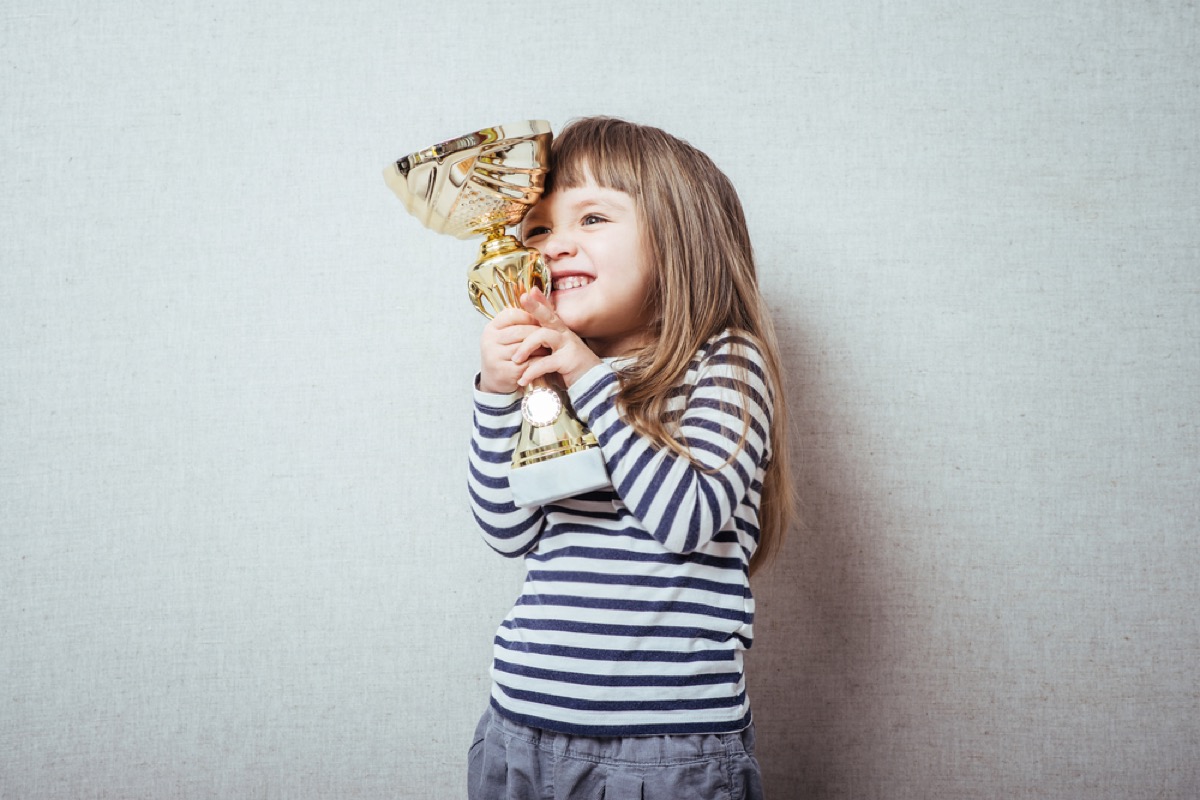
"Today's parents seem to be spending great deals of money and income on their children in an attempt to 'celebrate their child's success,'" says DeGarmo. The only problem? In doing so, parents often make it seem as though their kids don't have to work hard for the things they want—hardly a sustainable philosophy in the long run.
13
Use hand sanitizer constantly
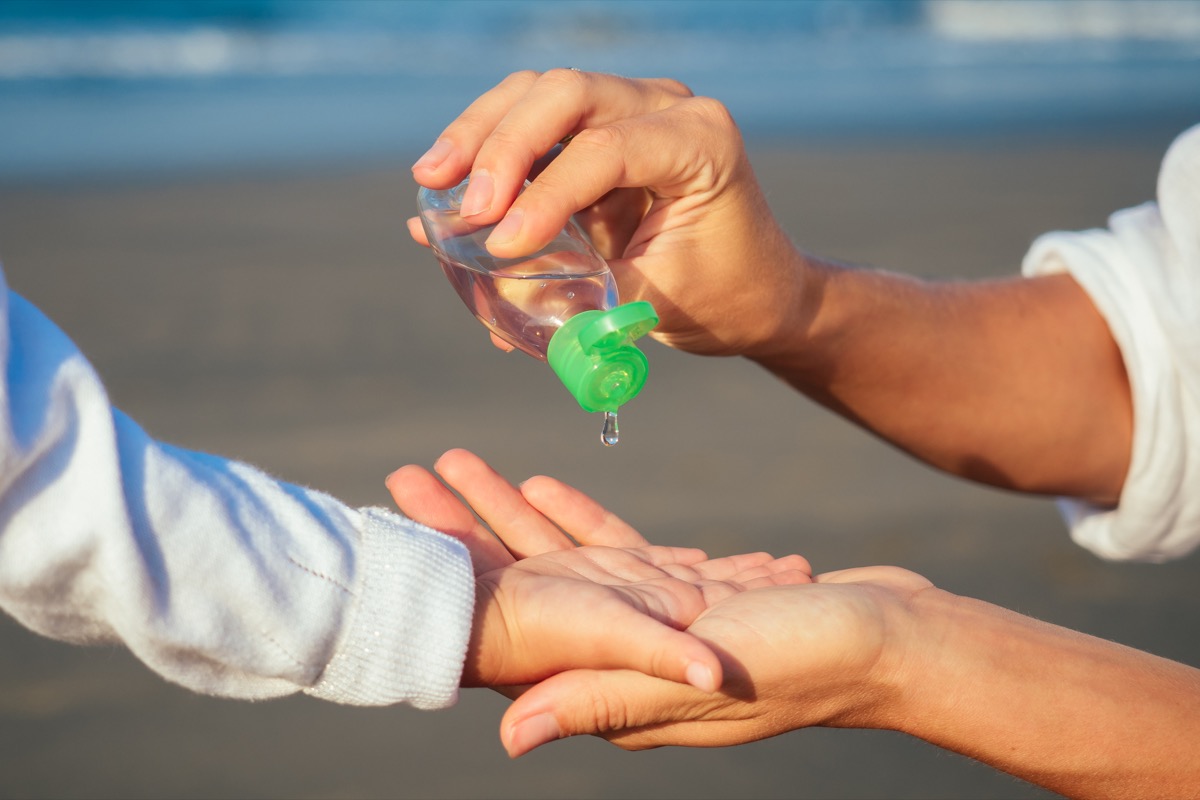
While hand sanitizer has its benefits, letting your kid slather it on constantly may be doing more harm than good. According to a 2018 study published in the journal Environment International, the use of triclosan-based hand sanitizers can spur the development of antibiotic-resistant bacteria, including E. coli. And in terms of allergies, using hand sanitizer instead of soap can present serious dangers—unlike hand-washing, sanitizer doesn't remove allergens like shellfish or peanut proteins, increasing the risk of potentially-lethal transfer.
14
Get a huge allowance
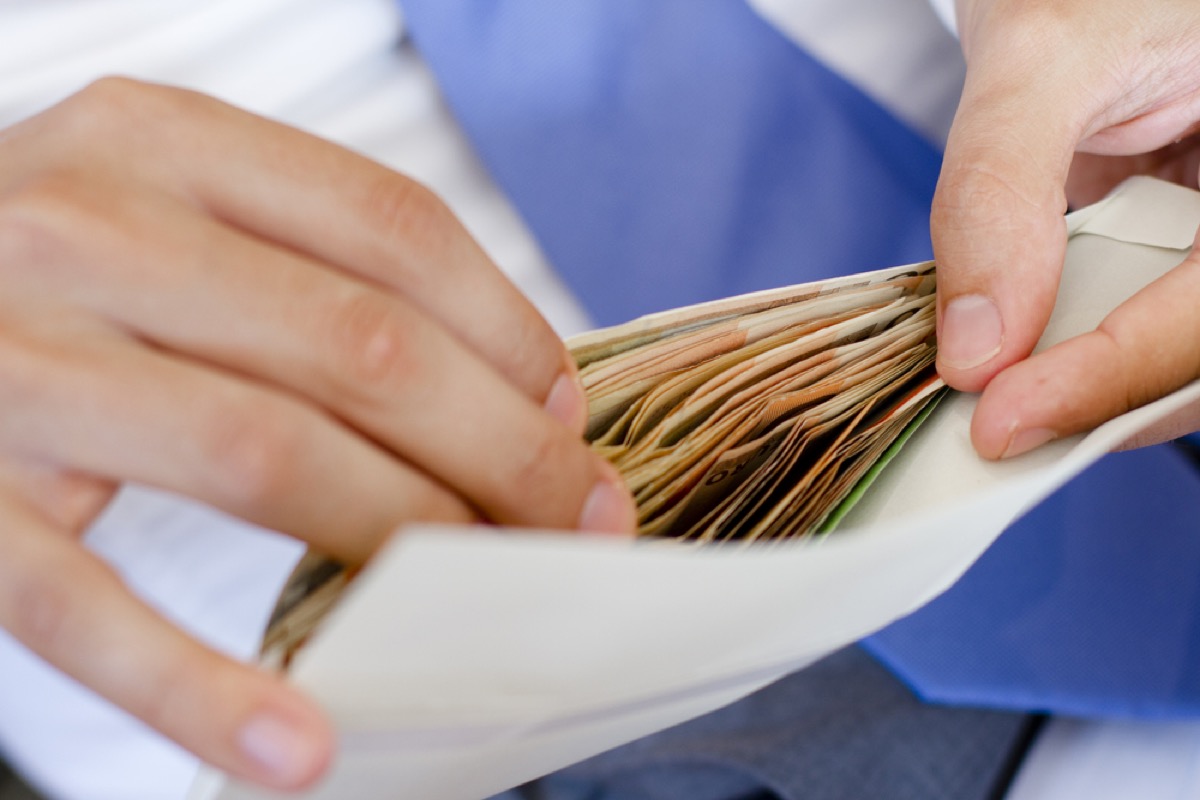
While many kids are still getting an allowance from their parents—4 in 10, according to one CreditCards.com survey—a quarter of them aren't receiving any real form of financial education. This results in kids who don't understand how to save, how to safely spend, or what they should consider acceptable thresholds when it comes to debt.
"We see more and more young people become increasingly in debt, as they overspend on credit cards and even find themselves in bankruptcy at an early age; all lessons learned from those parents who teach their children that 'More is better,'" DeGarmo noted.
15
Go tanning
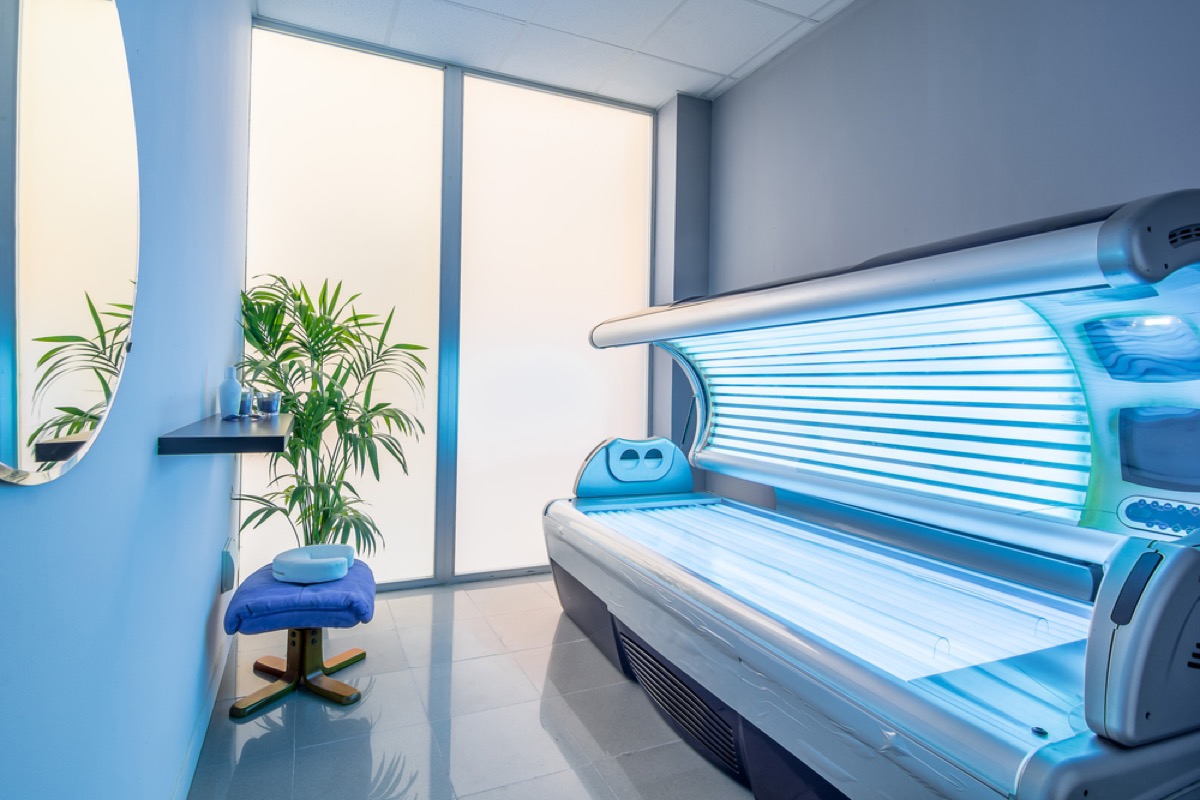
Though you may slather on sunscreen like it's your job, there are still parents out there who let their kids hit the tanning bed. In fact, according to a 2014 review of research published in JAMA Dermatology, 17 percent of teens admitted to using a tanning bed at least once, and a 2017 study in the same journal reveals that 32.7 percent of tanning bed users start using them before age 18.
16
Drink energy drinks

Think letting your kids have an energy drink from time to time is no big deal? Think again. According to a 2019 study published in the Journal of the American Heart Association, energy drink consumption increases both abnormal electrical activity in the heart and blood pressure for hours after the last drop of that caffeinated concoction is gone.
17
Get tattoos
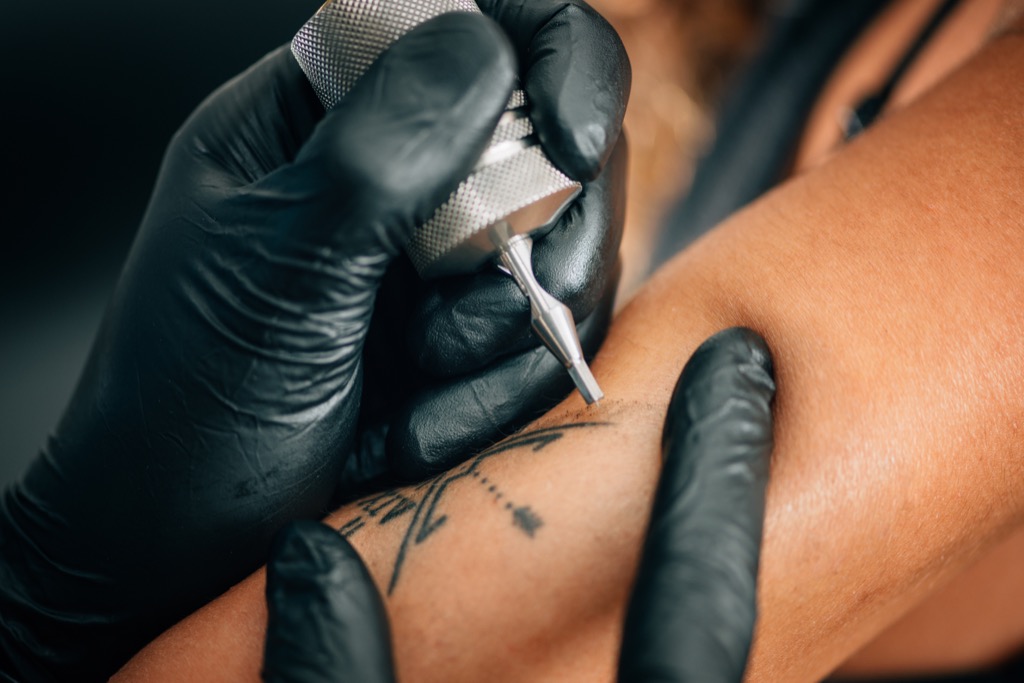
While tattoos are becoming increasingly commonplace among adults, parents who let their underage kids get tattoos have become the subject of some serious scrutiny. That said, there may be more of them out there than you'd imagine. According to the results of the 2018 Mott Poll, 10 percent of parents surveyed said they would be okay getting their underage teenager a tattoo as a reward or for a special occasion. (Pro tip: Most reputable shops will not ink anyone under the age of 18.)
18
Play only violent video games
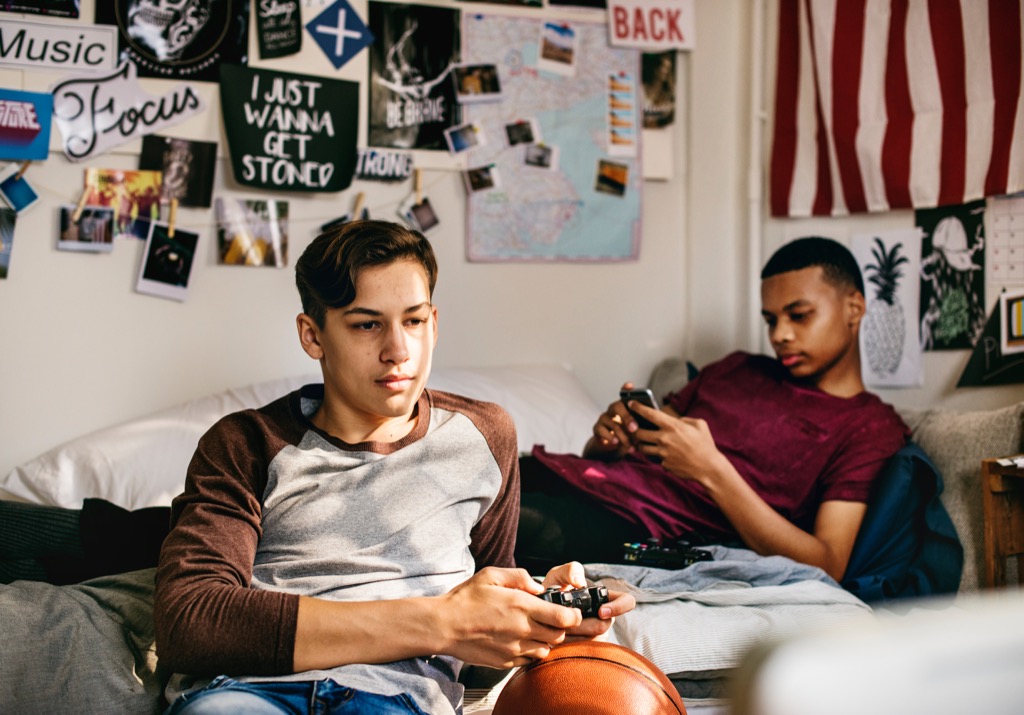
"One of the most detrimental things a parent can do is let their child play very violent video games," says Kulaga. "Video games have changed over the years. They are more life-like than ever before and have become very gruesome. … For a young child, this is setting an expectation, an understanding, and creating parts of their logical thinking and value system."
To be fair, not all experts share that line of thinking. As reported in an exhaustive deep dive by video game website Kotaku, two-and-a-half decades of video game research shows that the jury's still out as to whether or not violent video games lead to real-life violence. Either way, it's good to make sure your kid has a healthy mix of titles in their video game library. For every Call of Duty, make sure they play The Witness. For every Assassin's Creed, introduce them to a beloved little art-house indie game, like Gris. Balance the over-the-top violence with some brain-bending whimsy.
19
Have over-the-top coming of age celebrations

That over-the-top bat mitzvah, quinceañera, or Sweet 16—the one you spent more money on than your own wedding—probably isn't teaching your kids healthy lessons.
"In reality, these types of celebrations are sending some wrong messages to children," says DeGarmo. "To begin with, today's children believe that every event can only be celebrated with the spending of money. Money and gifts are symbols of love and support for these children, instead of the simple presence and time spent between parent and child."
20
Take on huge amounts of student loan debt

Though kids are technically adults by the age of 18, many parents know that, in terms of their decision-making ability, that's hardly the case. That's why it's so shocking to many people that parents encourage their children to take on huge amounts of debt to finance their educations.
According to Debt.org, as of 2017, average U.S. debt was $37,172—or a national total of $1.4 trillion. And while a college degree may be necessary to obtain work in many fields, taking on massive debt for a private education isn't.
21
Have access to firearms

While the intricacies of the second amendment and its applications can easily be argued forever, one thing is certain: unsecured firearms have a serious body count. According to a 2017 review of research published in Pediatrics, 1,300 children are killed and 5,790 sustain injuries from firearms in the United States each year, and the most common means of unintentional death involving a firearm was a child simply "playing" with the gun.
22
Get in physical fights
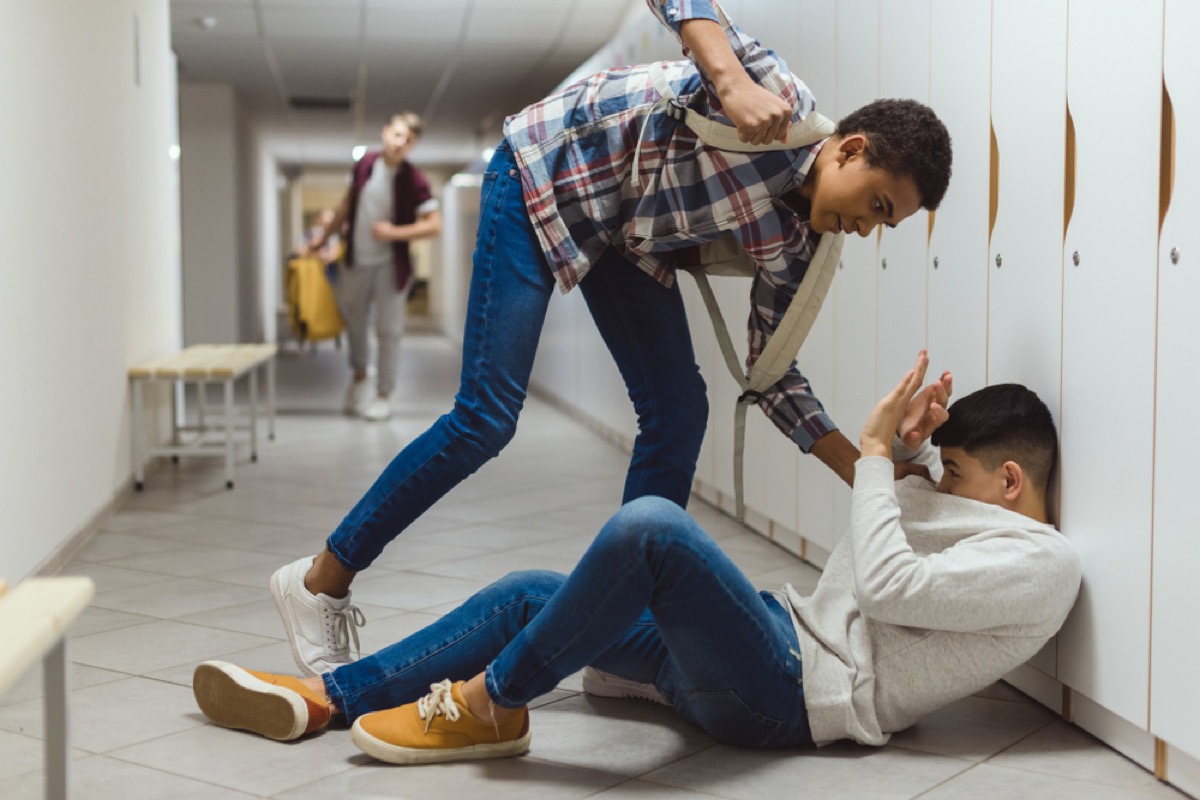
While letting your kid work out their social problems with their friends may have benefits when it comes to their emotional development, letting them—or even encouraging them to—fight is an entirely different story. There are parents out there still espousing a "don't start fights, just finish them" philosophy. According to the U.S. Department of Health and Human Services, 24 percent of high schoolers reported getting into a physical fight in the past year.
23
Get their own place before adulthood
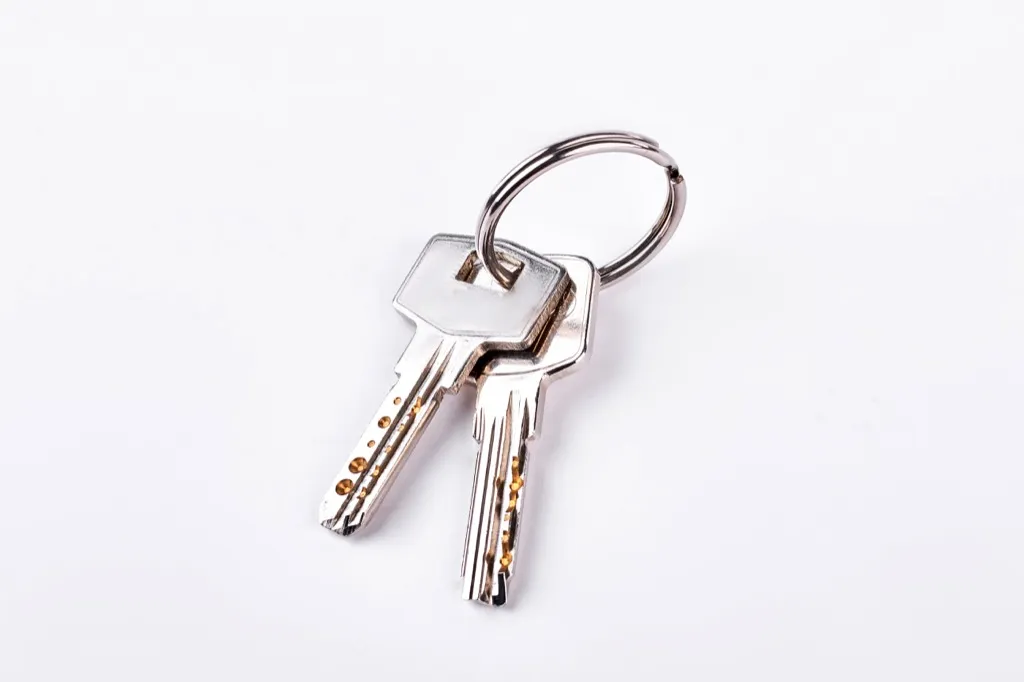
While, to some people, flying the coop at 18 (or earlier) seems reasonable, to parents in other parts of the world, letting your kids fend for themselves at that age is nothing short of ridiculous. According to statistics from Eurostat, as of 2017, 36.7 percent of adults between 18 and 34 who were working full-time in the European Union still lived with their parents—a number that jumps to more than 50 percent in some countries. In fact, leaving home that early may be a recipe for disaster for some less-mature young adults.
"The prefrontal cortex of the brain is not fully developed until around age 25," adds Kulaga. "This part of the brain is responsible for rational and logical thinking as well as impulsivity and planning. Just take a moment to think back to your teenage years, how different was even something as basic as your common sense? Probably much different." And for more parenting practices, here are 30 Things Parents Have to Worry About Now That They Didn't 30 Years Ago.
To discover more amazing secrets about living your best life, click here to follow us on Instagram!
Shutterstock




















